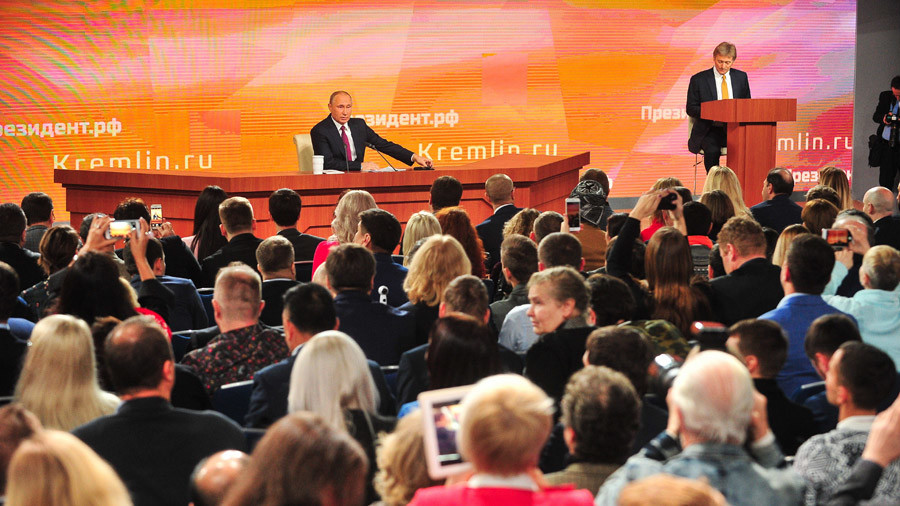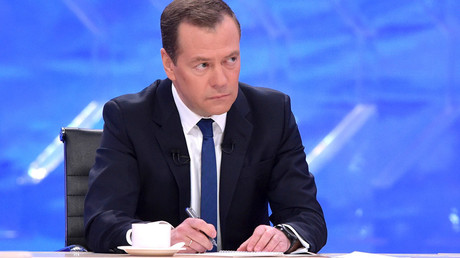Putin to run for new term as an independent

“This will be a self-proposed candidacy, but I count on support of political forces who share my views on the development of our country and who trust me personally,” Putin told a major annual press conference in Moscow on Thursday, answering a reporter’s question about his particular plans for the presidential campaign.
The president also said that his election campaign plan was practically ready, but he has not yet chosen the person who would head his election headquarters – an issue that Putin described as “technical but important.”
Russian law requires that people who run as independents collect and submit to the Central Elections Commission 300,000 signatures of people who support their candidacy. People running on the ticket of parliamentary parties are spared this condition, while candidates backed by non-parliamentary parties have to submit 100,000 signatures.
Putin publicly announced his intention to run in the March 2018 elections last week, but did not say if he planned to secure the backing of some political party. Still, shortly before Putin’s announcement, the head of the conservative-centrist United Russia, which holds the majority in the parliament, Prime Minister Dmitry Medvedev, pledged “unconditional” support for the incumbent president.
The next Russian presidential election is expected to take place on March 18 – the anniversary of Crimea’s reunification with Russia. People who have already announced their intention to run include the founder of the liberal Yabloko party, Grigory Yavlinsky, the longtime leader of the Liberal-Democratic Party of Russia, Vladimir Zhirinovsky, the head of the Grand Freemason Lodge of Russia, Andrey Bogdanov, business ombudsman Boris Titov, journalist and former ‘it girl’ Kseniya Sobchak, and a number of others.










